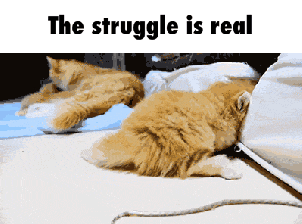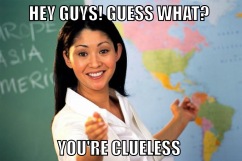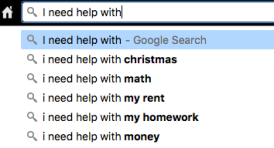Digital natives don’t know everything there is to know about the digital world – and especially research in a digital world. This is not breaking news. According to this study – done by anthropologists (woot!) – although library staff and professors need to do a better job of reaching out, students are pretty lousy online researchers. If you’re a teacher, you know…

Unfortunately, students don’t realize this struggle. They THINK they know it. Now I’m not going to turn this into a post complaining about students because that’s not my style and it’s not their fault. They don’t know what they don’t know.
There’s an old proverb (Chinese?) that goes something to the tune of:
“He who knows not and knows not that he knows not is a fool…shun him.
He who knows not and knows that he knows not is willing…teach him.
He who knows and knows not that he knows is asleep…awaken him.
He who knows and knows that he knows is wise…follow him.”
Unfortunately, most students fall into the first category when we really want them to fall into the second category (and most of the time they do!) – but we are definitely not going to shun them.
Here’s where it gets complicated. Students don’t know what they don’t know – but they think they know so they think they don’t need to listen.
So the big question is…how do you show someone that thinks they know something when they really don’t? Basically, how do you show students they’ve got it all wrong?
Doing some preliminary research, I haven’t come across any strong examples of how to answer this question. As a teacher it doesn’t come natural to me to convince people they don’t know how to do something.

A couple ideas:
- Present it like a misconception.
As a former science teacher I know about overcoming misconceptions (evolution, blue blood, the location of the heart – seriously). This problem isn’t quite the same as a misconception about the laws of the universe and life itself – it’s bigger. This misconception is so problematic because it’s based around a skill not content. My assumption: not being able to DO something is worse than note KNOWING. When you tell someone they don’t know how to research they can really take it personally. If you tell some they don’t know where the heart is located there are things you can do to prove it to them, they feel silly for a little bit and they move on. The best way to bust a misconception leads me to my second idea… - Just show them.
If only I could cut open a rat or similar mammal and show where the heart is. This is where it gets uncomfortable for me. Not the dissection, that’s cool. The “you think you know how to do this, but you really don’t” part.You can show them the imperfections of searching online. When looking for research it will not inherently give you information that’s good to cite or even worth your time. That’s not the way it is designed.

Their responses are usually along the lines of “yeah, google isn’t perfect, but I know how to use it.” Also, showing them an example or two doesn’t work because they need to do it themselves, but we can’t be sitting over their shoulder for every search.So if explaining to someone they don’t know how to do something is so difficult and students don’t want to admit that they don’t have that skill – how can we lower the stakes for both sides? How can we make it so students feel more comfortable admitting they don’t have that skill and therein also lower the guilt created in me?
We need to create an environment where it’s ok to fail because with failure comes the opportunity for learning and growth.
I’ve spent a lot of time rambling, but maybe the answer is we don’t have to prove anything to them, we just need to do a better job of modeling and showing them good search methods. Teach them search operators – it opens up a new world of information more efficiently. Teach them how to evaluate – it takes some of the pressure off of bad searches. Practice determining keywords. Probably most importantly, we just need to be modeling good searches with our students. Anytime there’s something to look up, model a good search or have the students practice, but do it intentionally and visibly as a class.
I’m just brainstorming. I, obviously, don’t have the answers yet. Hopefully this post will get updated a few times. It’s a place to start a conversation.
Do you have other ideas? Thoughts? Maybe things that have worked for you? I’d love to hear! Let’s talk! Leave a comment or send a message on twitter @ohsoearly
Great points and perspective, Aron. My $0.02:
-invite the librarian into the class to demonstrate searching and citing. I’m very lucky and have great support, hearing it from a “credible” source makes it more believable, and the stakes are low because the research librarian won’t be marking any assignments. Our school has a dedicated 1st Year Experience Librarian at each campus.
I agree: modelling is great. A mock up of the assignment in class can anticipate where students might hit roadblocks.
Any more thoughts and this will be a hijack of your post
A
LikeLike
Thanks! I like that you point out the “librarian isn’t grading anything” as a way of lowering the stakes. I’ll take all the thoughts I can get, but appreciate the respect. 🙂
LikeLike
I’ve been saying this to my faculty for years–when you need to look something, explain your process out loud. Why are you choosing a certain site instead of another. Why did you use those words in your search, etc. Students have role models in sports, business, entertainment, but not technology. We can all chip in and set an example, one search at a time.
LikeLike
oops: when you need to look “up” something. Apologies for other typos–this is why I don’t blog/comment very often 🙂
LikeLike
Thanks so much for responding. It’s always good to know other people are thinking the same thing.
LikeLike